NECROPHOBIC’s SEBASTIAN RAMSTEDT: “I Want Us To Be Like W.A.S.P, But More Satanic”
October 20, 2020, 4 years ago
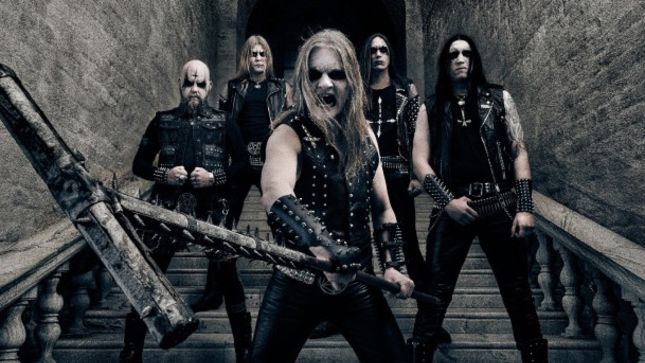
Sweden’s blackened death metal sinners Necrophobic are back with Dawn Of The Damned, the sequel to their highly lauded Mark Of The Necrogram, out now via Century Media Records.
With a career-spanning lineup that includes Anders Strokirk (vocals), Sebastian Ramstedt (lead guitars), Johan Bergebäck (rhythm guitar), Allan Lundholm (bass), and founding member Joakim Sterner (drums), Necrophobic combine sinister lyrics, scorching vocals and frantic riffs for an extreme metal package that has endured for two decades and counting. Ramstedt caught up with BraveWords to dive deep into the new record, share insights and inspirations and much more in this in depth interview.
BraveWords: No one plans to release an album during a pandemic, but it’s a fantastic distraction for fans across the globe who may be looking for something to sink their teeth into. What’s your take on the timing of the release and the feelings surrounding the album?
Sebastian Ramstedt: “We were lucky that our record was just recorded, so we had a lot of time to think about videos and promotion and also the mix. Usually you’re kind of stressed doing that because you need to get back on the road, but this time we had a lot of time to think things over. So it worked pretty well in our favor. Also we have had a little time with our families, and that’s always nice. It’s boring to not play of course. Really boring.
“Music is so strong to change the mood you feel. I heard a bunch of people in Mexico actually got together, although it was forbidden, to celebrate that we made a new single video. So that says a bit about how strong it is.”
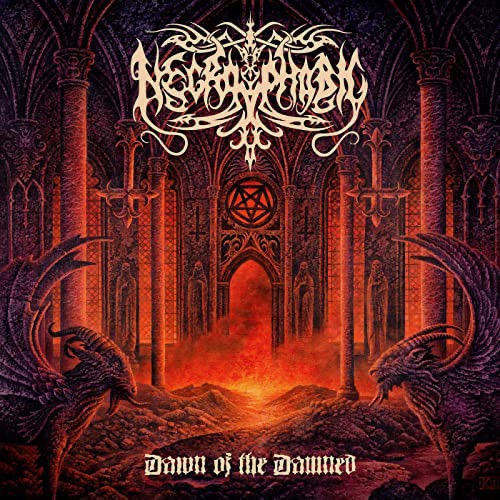
BraveWords: With Dawn of the Damned following up one of the groups more acclaimed records ever in Mark Of The Necrogram, was there a pressure as the primary songwriter to keep that momentum going, or even top it?
Sebastian Ramstedt: “I just kept on writing after Mark Of The Necrogram. The success of the album came gradually during those two years on the road. So when I had written most of the material, I didn’t know about the success yet. But now when I know this it would have been horrible to start the writing sessions now, you know? And to do a third album now, that would be pretty hard, actually. You have to do what you want to do, you can’t think of what you should do. But actually when writing Dawn Of The Damned I felt totally free. There was no pressure at all. I felt confident and just kept doing what I do.”
BraveWords: While much of the Necrophobic discography deals with things like the occult, Satanism and dark imagery, Dawn Of The Damned reportedly features quite a bit of inward reflection within the songwriting. Has that been common for you in the band, and what led to that choice for this record?
Sebastian Ramstedt: “Well, I always felt that if you had the opportunity to write something and put it out in public on the record, you should write something that is part of yourself. Even the more plain blasphemic Venom or Slayer like songs in the past of course mirrors a part of your personality. It’s not just made up. It’s something you feel. But then maybe you write the lyrics to fit the music in a more heavy metal way that can feel a bit shallow, but it’s not really. But this time I kind of had the opportunity to make a concept album.
“Mark Of The Necrogram, I had a feeling that it would be successful and the feedback we got was people liked it immediately. They listened to the first song and it was like oh yes, this is a great album. So I felt like we have that album in our back and we can do a little bit more of a progressive album with a little bit more depth. Maybe make the listener think a little bit. So I feel a concept album is right now. The follow up to the Mark Of The Necrogram can be a concept album. And if you’re doing a concept album, you need more to the lyrics. You need something to write about. So I just looked inwards.
“I had been through really rough times after (his) departure (from) Necrophobic in 2011. And during those years there was big turmoil in my life. Big changes. I lost a lot of friends and I had to change everything that’s me. I felt, I don’t want to write about those things, but I want to write about being in that kind of position where the future is no future unless you take a plunge into the dark. If you go really down into the dark where you will not know if you come out. Sometimes you have to burn all your bridges and you just have to run into the dark. So that was kind of the concept for the songs to make that decision and to be something else and see where it leads.
And also, I had a lot of notes from the ‘90s where me and the old singer Tobias … we did a lot of lucid dreaming, a lot of meditation and a lot of astral projection and rituals and stuff like that. I had a lot of crazy experiences that I always penned down. That time was also a time of big change. So I had this more personal crisis change now and I had these other experiences back then. So I put them together in a concept album about letting go and see where it leads, you know? But it’s still very much written, as our lyrics are always, to match the music. You know there is the satanic imagery, there is the darkness and everything you expect on a Necrophobic album. But there is something with more substance to back it up.
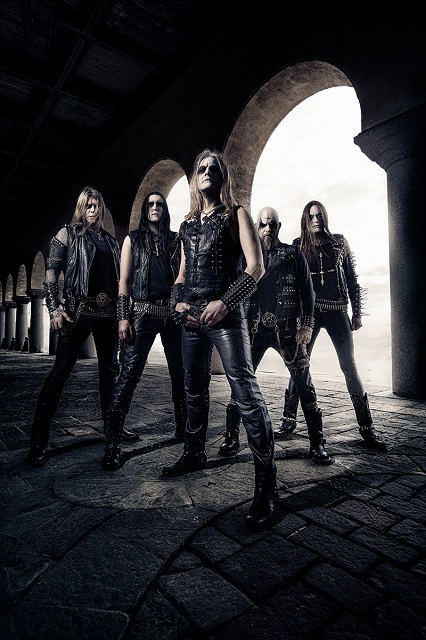
BraveWords: With a band like Necrophobic, there has always been a fine line between mixing death and black metal and appealing to cross demographics while also staying constantly heavy. Is there a pressure to keep that level of heaviness while also continuing to experiment and evolve over time?
Sebastian Ramstedt: “When I write the songs, I always think that I cannot let down the first three members of Necrophobic … So I feel the songs I write now, that they must like it. If they had heard it in 1991 or something, I want them to have liked it. And also, Joakim doesn’t like change very much. He kind of always wants Necrophobic to always be the way he wants it to be, so I have to sneak in change in other ways. I have the formula for how a Necrophobic song is with the heaviness, with the black metal atmosphere and with the lyrics and so on. But then I can twist it by doing guitar riffs and some melodies that are unexpected, but still within the same frame. Joakim is not a guitar player, so he pretty much just hears great death and black metal riffs, but I know that these riffs are something really special in this genre because usually people don’t use the guitar like this. So that’s kind of how I make it fun for myself. I need to put some new knowledge into my writing without Joakim knowing (laughs).”
BraveWords: In those early days when you began to break into and discover your love for heavy music, what were some of those defining influences? What would you say were some of those early bands you modelled your sound or tastes on?
Sebastian Ramstedt: “Back then in the ‘80s it was Iron Maiden, Judas Priest, Saxon. Probably Saxon more than any other band. Image-wise, it was Mötley Crüe and W.A.S.P. That combined, the hard music from Europe and this spectacular bloody image of the states, those two together were just fantastic. And that is still what I’m trying to do.
“I want us to be like W.A.S.P, but more satanic. And I want us to be like Iron Maiden, but heavier, you know? I must have new influences all the time, new input on things. So recently I’ve been listening a lot to the glam rock guitar players of the ‘80s, which I hated back in the ‘80s. I hated when you watched MTV and there was a Cinderella song or something and you had to sit through that to get a Sepultura song. But recently over like five, six years ago, I started to think of looking into why is everybody speaking about those guitar players? There must be something to it. And I realized that I have missed a lot of great techniques and themes and stuff by judging those bands as poser bands. So now I happily dig into the Dokken back catalogue just to pick out the goodies that I can get inspired to do black metal off. I don’t do Dokken pastiche, but I can take what I hear and I can create new kinds of riffs because of it.”
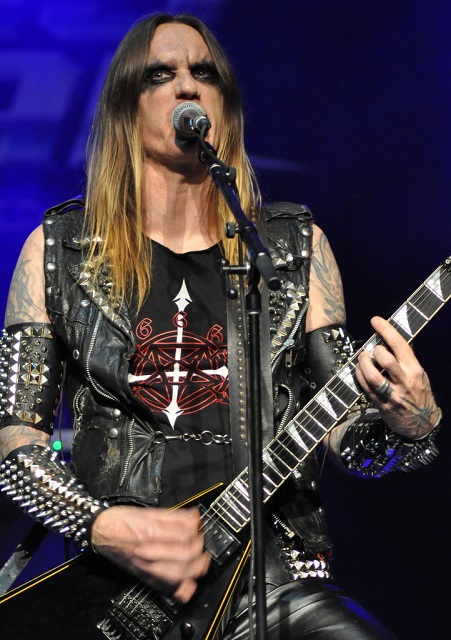
(Photo by: Mark Gromen)
BraveWords: If you consider the Necrophobic lineup today in 2020, it really feels like a meshing of different eras of the band, with Joakim and Anders from the early days, yourself and Johan from, I suppose you could say the middle-era, and the newest addition of Allan. What’s your take on the lineup presently and the chemistry at this stage for the group?
Sebastian Ramstedt: “From a fan perspective it’s different how you look upon it than from a band member perspective. We actually sat down after this reunion thing and said we cannot talk about original members anymore. This band was formed right before Mark Of The Necrogram. Let’s take away all the past. This is the band that was formed now, and we are all original members of this Necrophobic. There was another Necrophobic before, but on this Necrophobic we are original members.
“But even though we are pretty spread out from different eras, we the band right now and even with Allan, all of us were in death metal bands in the late ‘80s, early ‘90s. So we’re all from that era of time. We have been through the same influences, through the same times, through the rise of black metal, the fall of black metal and the rise again. And that is kind of easy to lay out the path for the future when you have seen it all. If you have really young members, they look upon everything as new stuff and they want to try everything. But when everybody is about the same age, it’s kind of easier to make good decisions about where to go. But for us being in a band, you don’t look back. You’re not nostalgic. I think of Necrophobic only today. What will I do with Necrophobic today? That’s important, because my creative drawing bears no nostalgia.
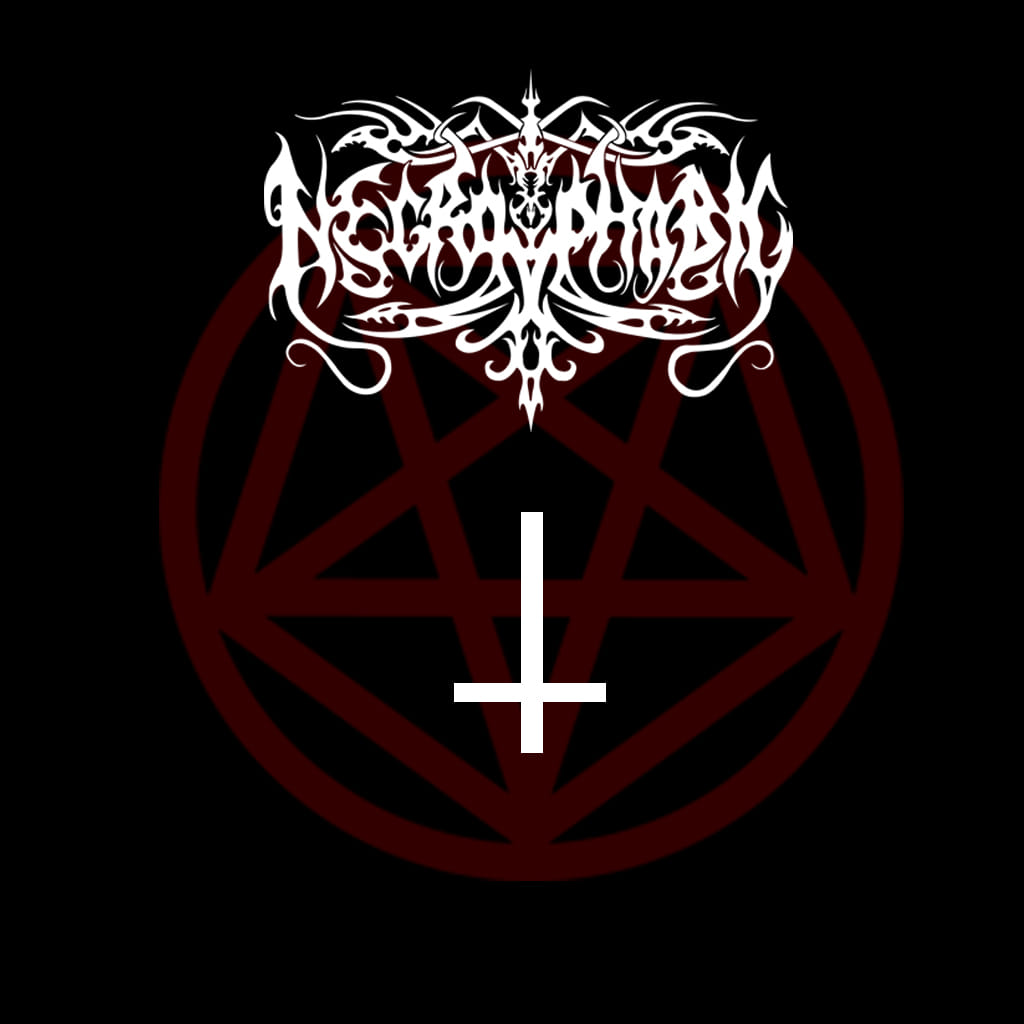
BraveWords: If someone were to ask you for the all-time great metal album, one that could stand above the rest, what would you tell them?
Sebastian Ramstedt: “Defenders Of The Faith by Judas Priest is probably the best heavy metal album of all times. If someone asks humanity in 100 years then you can show that album. This is heavy metal.”
BraveWords: Obviously with the ongoing pandemic touring options will be limited, or certainly need to be adjusted for the majority of bands and artists. In a perfect world, how would you like to see the next six months to a year go for the band, all things being equal?
Sebastian Ramstedt: “We feel that it might be a good idea to start touring again. You know, we have made only small tours and only festival gigs. We played a lot because you don’t need to tour to play a lot. But touring, especially Europe, has been kind of dead for a band as big as we are. Which means that you will have 500 people on the weekend and you will have 80 people on a Monday. You have to take money from your own pocket to live that life. And it’s no use when you can do festivals on Saturday or Sunday and meet as many people there as on the whole week, you know? But now things have changed.
“I think we might have to look into touring again, especially the states and especially South America. South and North America we have reached a new level, as it seems, which is pretty fun. Unfortunately, the USA is very hard to get into and play. Black metal doesn't have an easy time there right now. So we may have to look for Canada and South America. Probably there will be more touring on this album if the borders open. We’re willing to do this this time because these kinds of opportunities don't show up that often. You can write albums every day in life if you want, but you cannot have a band on the roads every time. It depends on how successful the album was and so on. So we’ve been doing this for 30 years. There’s been a few good years for touring, but mostly not. I mean, 20, 21 is probably a good year for touring and we should take that chance if we get it.
“I hope it reaches new heights. I think it will feel different. People will feel proud and have more energy when we start playing... I mean, people would not be fed up with gigs every weekend, as it has been for the last 30 years. It’ll be a great time to get back on the road.”











